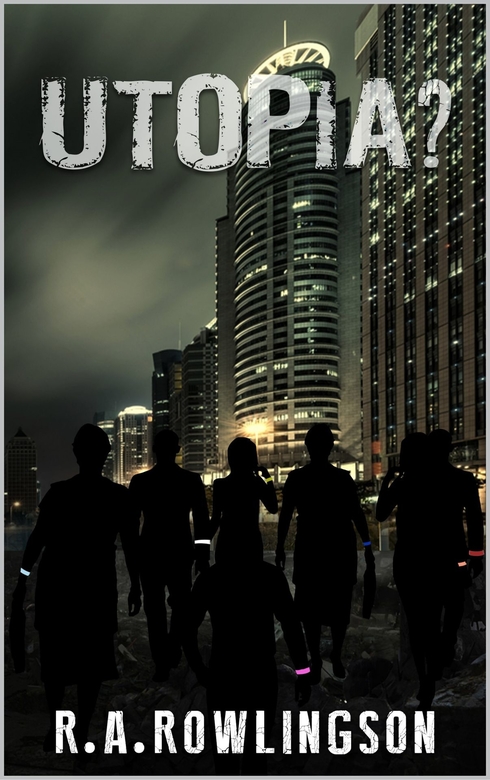
Author R.A. Rowlingson launches readers into an eerily familiar dystopian world with Utopia? The titular megacity may be a last bastion of humanity bulging behind massive walls, but there are dangerous powers growing both within and without, in this sinister work of speculative fiction.
The masses of the Commune outside the walls are beginning to realize that fighting amongst themselves isn’t the way forward, while the political stability within Utopia is being offered up to the highest bidder. In a shifting landscape of power brokers, blackmailers, and infiltrators, the smoking man and the pixelated man villainously vie for control of the city through their shadowy threads of control.
George Mason just happens to be the undercover journalist caught up in the middle of this madness, where he gets to witness firsthand the backstabbing struggles for leadership amongst the Commune. While some of his newfound companions see his journalism as a force for change, the puppet masters of power in Utopia have other ideas, regardless of whose life it costs along the way.
The question mark in the title is well-deserved, as humanity’s advancement is far from perfect in the occasionally hellish landscape of this near-future thriller. There are many aspects of this novel that reflect our present world, in a bit of a carnival mirror, particularly America’s recent political issues. The social commentary woven throughout the plot is far from subtle, from the use of “fake news” to the head-on thematic explorations of wealth disparities, charlatanism, political maneuvering, chemically-enforced class division, and voting power.
The C.L.E.Ms (Chemically Lobotomized Excluded Members of Society) are just one of many visceral elements of this ominous future; the unique details of this dystopian realm pull readers in and send a shiver of discomfort up the spine. The manner in which the C.L.E.Ms are treated, even by protagonists whom readers may come to align with, is a striking commentary on some attitudes toward blue-collar workers and those in the service industry.
Similarly, the robotic “Matrix”-like Law Enforcement Officers behave in a way that is shocking and timely, particularly in America: “The officers were unfazed by the development. One simply drew its gun and pointed the weapon at the fleeing man.” As the story unfolds, countless plot details have a similar feel – fictional, yet disturbingly familiar, such as Mason’s comment on the party politics of the Commune: “Doesn’t seem very democratic. Rather it seems to be whoever has the more resources can win.”
The writing is generally clean and well-edited, though there is a fair amount of idiomatic language that can briefly pull readers out of the fictional world. The prose is straightforward and clear, without much flowery language, which adds to the stark tension that simmers beneath almost every chapter, but there are times when more creative embellishment would liven up a scene.
As a whole, Utopia? is a darkly inventive, incisively critical, and gripping plunge into our own potential future that may seem far-fetched at first glance, but could also be disturbingly prophetic.
Book Links
STAR RATING
Design
Content
Editing
Get an Editorial Review | Get Amazon Sales & Reviews | Get Edited | Get Beta Readers | Enter the SPR Book Awards | Other Marketing Services























Leave A Comment